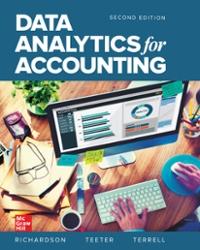Question
Assessment 4 : Marketing Report Topic: Environmental Analysis and Marketing Strategies Value: 40% Due Date: Week 12 (Midnight Monday) Length: 2,000-2500 words ( 10%) Assessment
Assessment 4: Marketing Report Topic:Environmental Analysis and Marketing StrategiesValue:40% Due Date:Week 12 (Midnight Monday) Length:2,000-2500 words ( 10%)
Assessment Description:
In this assessment you are required to thoroughly analyse the marketing environment of any one of the selected brands listed below:
1) Apple 2) Samsung 3) Google
Essentially, you are required to perform the following tasks:
- Conduct a thorough external macroenvironmental scan of the corporate brand/company, using PESTEL analysis.
- From PESTEL analysis and the analysis of customers and competitors, identify key forces (opportunities and threats) that may affect your brand/company strategy.
- Conduct a thorough internal environmental scan of your main brand and analyse elements of organisational culture, vision, mission, values, long term strategic orientation and capabilities (core competence and resources).
- From the analysis of the internal environment, identify key strengths and vulnerabilities (weakness) that may affect your brand/company performance.
- Suggest how you can use your Strengths to mitigate the effect of Threats and materialise the Opportunities. Also, recommend strategies to strengthen your Weaknesses and avoid Threats by utilising Opportunities. Use the TOWS matrix provided in the appendix.
Report Format and Specific Tasks
The following format can be used to present the findings:
- Title: Provide a captivating title that attracts readers Table of Contents (not included in the word limit)
- Executive Summary: An executive summary of the report, including the research approachand findings. (not included in the word limit)
- Introduction: What is the purpose of the report? Any background information relating to the report? What will your report cover? (approximately 150 words)
- Background: Provide a background of the selected corporate brand/company, itsproduct/brand portfolio, key competitors, global presence and market share (if possible). Use secondary information sources (with appropriate citations) to retrieve information. (approximately 175 words)
- Analysis of Marketing Environment: (approximately 775 words) 1. Conduct a comprehensive external macroenvironmental analysis of the corporate brand/company. 2. Use the PESTEL framework, including political, economic, socio-cultural, technological, environmental (natural) and legal analysis.
3. Based on this analysis and the analysis of customers and competitors in the secondassignment, identify the brand's opportunities and threats. 4. Conduct a thorough internal environmental analysis of the corporate brand/company. Internal environmental forces may include, but not limited to, organisational culture, vision, mission, values, long term strategic orientation, products and services, business partners, and capabilities.
5. Based on this analysis, identify the brand's strengths and weaknesses.
- Use secondary information sources from industry/company reports, the brand website,competitors' websites and other secondary sources to reflect on the external environmentaland internal environment of the brand.
- TOWS Matrix Strategies: Explain in details how organisational abilities (Strengths) can be used to pursue potential Opportunities and counter disabilities (Weaknesses) and Threats. (approximately 725 words).
- Conclusion: Summarise key findings of the report (i.e. specific points and findings the report came up with). (approximately 175 words)
- References: Provide references to any secondary sources used, following APA or Harvard referencing style. (not included in the word limit)
Following are some useful resources for environmental analysis and TOWS:
https://www.business.qld.gov.au/starting-business/planning/market- customerresearch/swot-analysis
https://blog.oxfordcollegeofmarketing.com/2016/06/07/tows-analysis-guide/ https://hbr.org/2007/03/from-swot-to-tows-answering-a-readers-strategy-question
See an example of TOWS matrix for VW in the following article: Dyson, R. G. (2004). Strategic
development and SWOT analysis at the University of Warwick. European journal of operational research, 152(3), 631-640. (accessed via CDU library's website)
General Guidelines
The report should be well written, consistently following Australia English writing conventions, properly spell checked and proofread.
Formatting guidelines are:
oPage size, margins and line spacing: A4 page size and Normal margins (2.54cm each
for left, right, top and bottom), 1.5 line spacing for body text, headings and sub- sections oTitle: 14pts, bold, Times New Roman or Calibri, 6pts space before and after. oFirst Heading: 12pts, bold and underline, Times New Roman or Calibri, 6pts space before and after. oSecond heading or sub-section: 12pts, bold and italic, Times New Roman or Calibri, 6pts space before and after. oBody text: 12pts, Times New Roman or Calibri, 6pts space before and after, 1.5 line spacing, left indentation (first line). oFollow strictly the report format mentioned above with exact headings (main sections) as advised. oHowever, subsections of your choice can be added for better organisation of the report. oAvoid using jargons and contractions. Acronyms should be mentioned in full for the first time. oFollow the indicated number of words for each section (a margin of 10% is permitted). oCite tables and figures properly, if any, following APA or Harvard referencing style
consistently across the report.
oNOTE:Whenyouuseanysecondaryresources,don'tforgettocitetheresource properly if the information is not a 'common knowledge'.
oHarvard referencing styles should be used consistently across the report. oSubmission of the assessment should be made according to instructions given below
and in time to avoid delayed-submission marks deductions. oRemember to submit a draft of the report for plagiarism check before final
submission.
Submission Instructions and Marks Allocation
- All submissions should be made using Learnline submission folder.
- Allocation of marks is as follows:
Section. Mark allocation
Executive Summary 2 Introduction 2.5 Background 2.5 External Macroenvironmental Analysis (Including identification of opportunities and threat). 10
Internal Environmental Analysis (including identification of strengths and weaknesses). 10 TOWS Matrix and Marketing Strategies 8 Conclusion 2.5
Report structure, presentation and referencing 2.5
Total 40
Step by Step Solution
There are 3 Steps involved in it
Step: 1

Get Instant Access to Expert-Tailored Solutions
See step-by-step solutions with expert insights and AI powered tools for academic success
Step: 2

Step: 3

Ace Your Homework with AI
Get the answers you need in no time with our AI-driven, step-by-step assistance
Get Started


